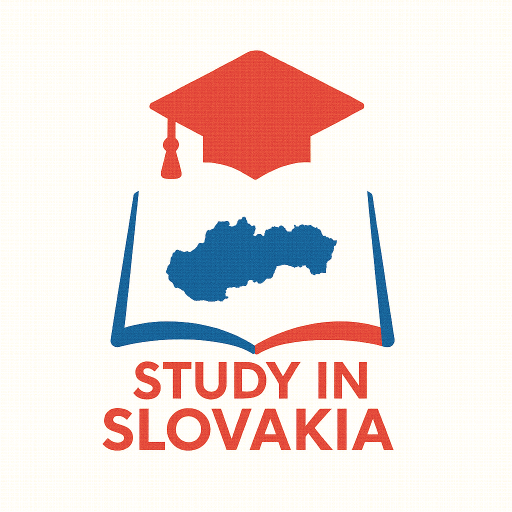Balancing Academic Rigor and Social Life in Slovakia
Flexible Academic Schedules
One of the key features that facilitate a healthy work-life balance for students in Slovakia is the structure of academic schedules.
Class Timetables
- Concentrated Class Days: Slovak universities typically design their schedules to allow for concentrated class days, meaning lectures and seminars are often held over three or four days each week. This structure provides students with blocks of free days, allowing them ample time to pursue extracurricular activities, work a part-time job, or simply relax and explore their surroundings.
- Academic Flexibility: The flexibility in scheduling allows students to manage their time effectively. During non-exam periods, students can engage more freely in social events and personal interests.
Examination Periods
- Prioritizing Studies: During examination periods, usually occurring in January and May/June, students are encouraged to prioritize their academic tasks. This might involve taking a temporary break from social activities or part-time work. Such a focus helps ensure that students can perform to the best of their abilities during critical times.
Active Student Life and Support Networks
Building a social network is crucial for international students, and Slovak universities offer an environment conducive to this.
Student Organizations
- Integration Through Activities: Student organizations are vital in helping international students integrate into the local community. These organizations provide a plethora of activities, clubs, and events that encourage participation and camaraderie, fostering a sense of belonging among newcomers.
- Support Systems: Through these groups, students can find support for both academic and personal challenges, making the transition to life in Slovakia smoother.
University Resources
- Orientation Sessions: Most universities provide orientation sessions that equip incoming students with valuable information. This introduction helps familiarize students with their new environment.
- Mentorship Programs: Universities often advocate for mentorship programs, pairing new students with experienced peers who can offer guidance and advice as they navigate their academic journey.
Opportunities for Work and Cultural Activities
The academic structure in Slovakia not only allows time for studies but also encourages engagement in cultural and work-related pursuits.
Cultural Engagement
- Part-Time Work: The relatively light class schedule means students can comfortably take up part-time jobs. Engaging in work helps students earn some income while also providing opportunities to immerse themselves in Slovak culture.
- Diverse Cultural Events: Students can easily attend various cultural events, partake in sports, or join clubs without significantly affecting their academic performance.
Time Management
- Allocating Time Wisely: It is essential for students to allocate designated time blocks for studying and coursework, especially during exam periods. By focusing on academics during critical times and utilizing free days for part-time work or leisure, students can maintain balance.
Tips for Maintaining Balance
Effective time management and proactive engagement are key strategies for international students aiming to maintain a healthy balance between academic rigor and social life.
Planning Your Week
- Weekly Schedule: Develop a weekly schedule that identifies specific periods for classes, study time, part-time work, and relaxation. Be sure to leave time for social events, as these are integral to enhancing your university experience.
Getting Involved Early
- Join Organizations: Attend orientation sessions and become involved in student organizations as early as possible. This will help you build a network and gain insights from others who have successfully balanced commitments.
Utilize Student Perks
- Take Advantage of Benefits: Many universities offer student discounts, cultural outings, and organized trips. Leveraging these resources can enrich your educational experience without straining your budget or time.
Seek Support When Needed
- Open Communication: Maintain contact with professors and academic advisors. If you encounter any difficulties, do not hesitate to seek help, as support systems are in place to assist international students in thriving both academically and personally.
Summary Table: Academic and Social Balance Strategies
| Aspect | How Slovakia Supports Balance | Student Strategies |
|---|---|---|
| Class Schedule | Fewer weekly class hours, free days | Plan work and activities on off days |
| Social Integration | Student organizations, clubs, events | Join groups early, attend activities |
| Work Opportunities | Part-time work is common and manageable | Work on non-class days, focus during exams |
| University Support | Orientation, mentorship, counseling | Seek help and build connections |
| Exam Periods | Clearly defined, allowing focused study time | Take short work breaks, prioritize studying |
Slovakia’s supportive academic environment and vibrant student culture make it an excellent destination for students seeking both educational fulfillment and a rich social life. For international student recruiters and higher education professionals, understanding how to help students balance academic rigor with social engagement is essential to their success.
Take the Next Step with Study in Slovakia
If you are looking to partner with a trusted authority guiding international students in Slovakia, Study in Slovakia is here to assist. Whether you are part of a university admissions team, an HR professional in education, or an agency focused on student placement, we invite you to reach out for collaboration opportunities. Together, we can enhance the academic journey of students coming to Slovakia.

